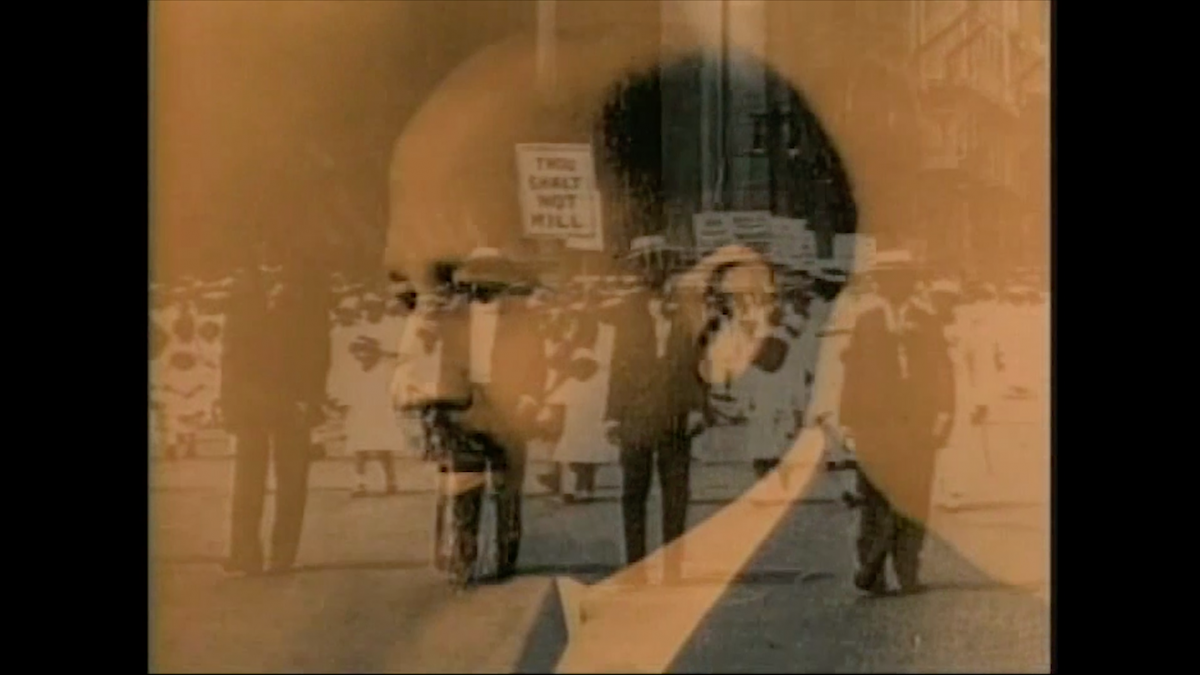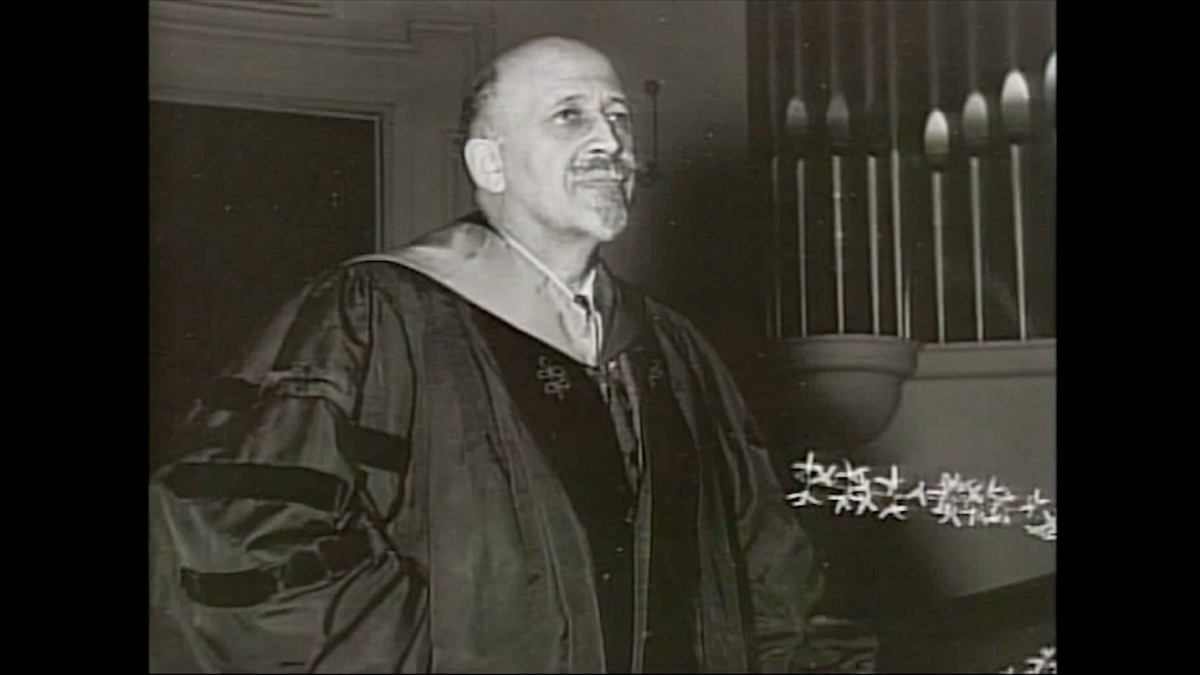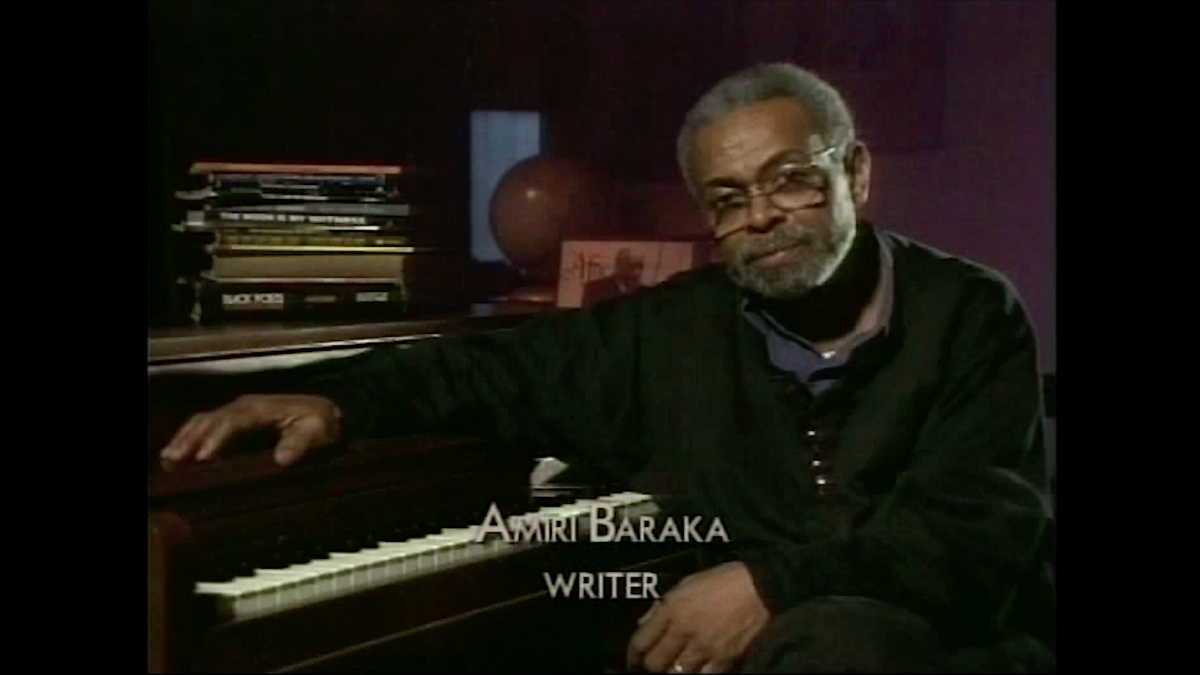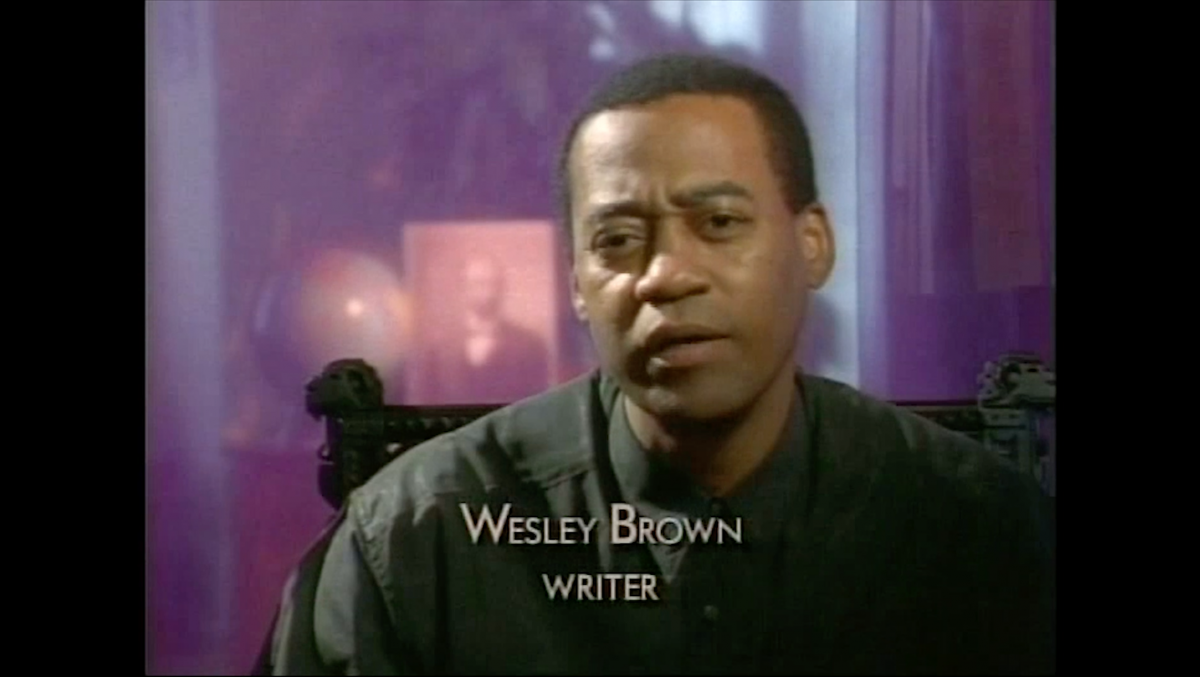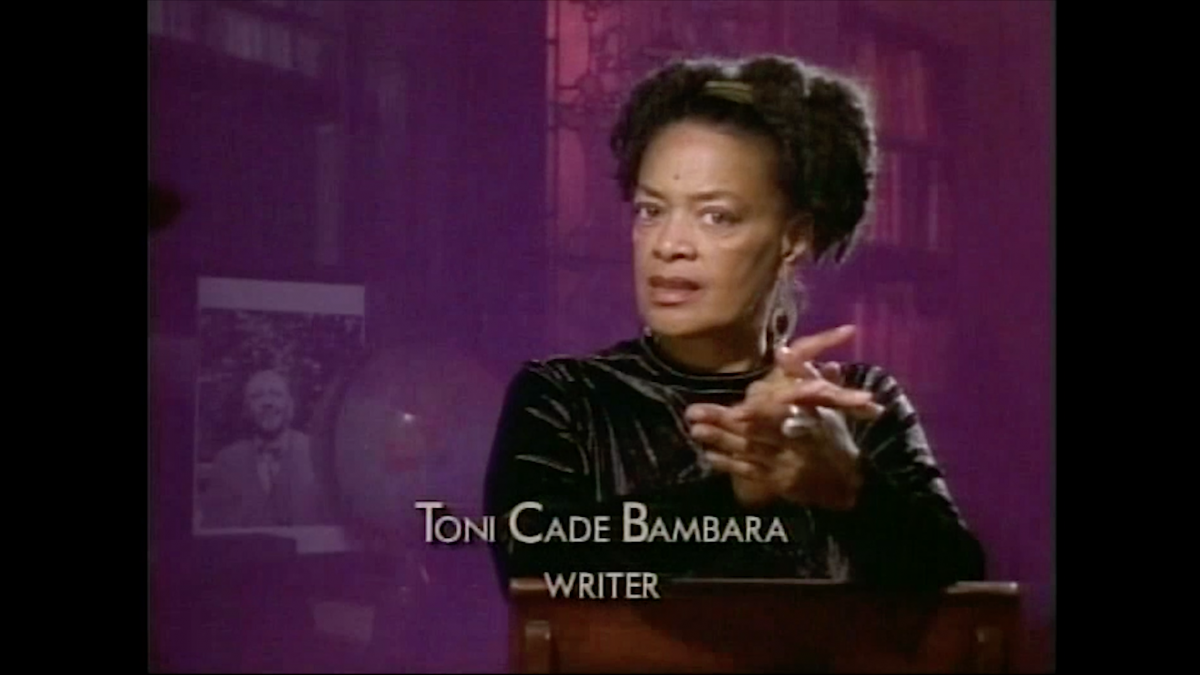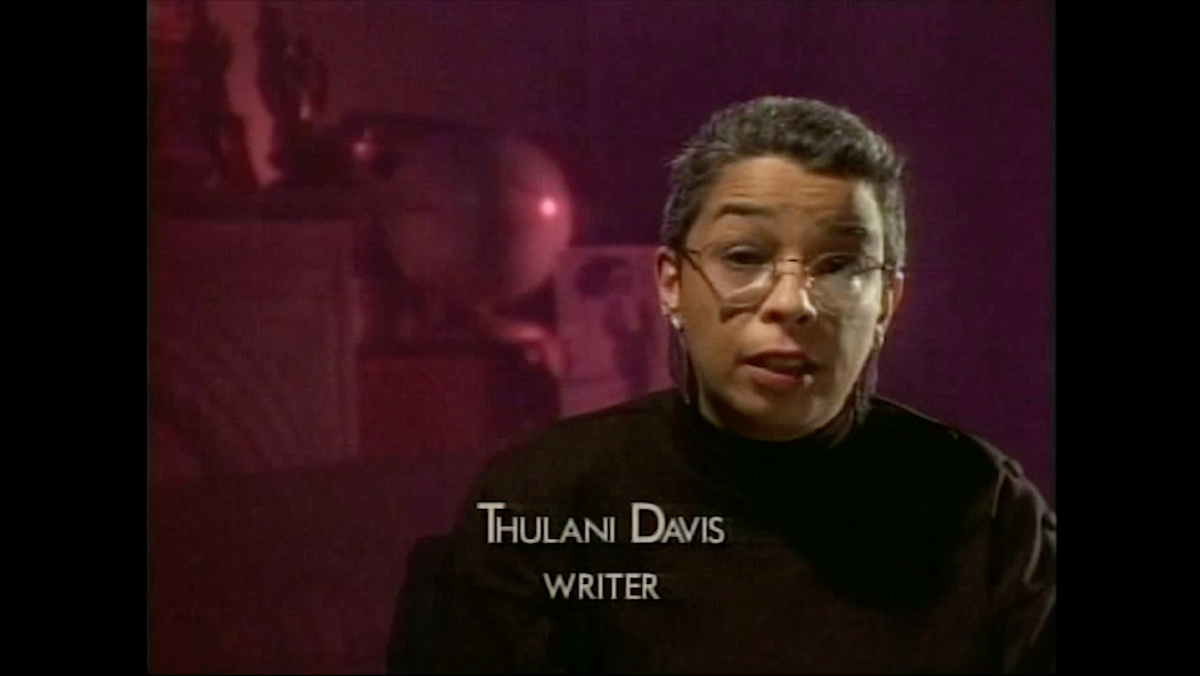W.E.B. Du Bois: A Biography In Four Voices
Price:
Film Summary:
The long and remarkable life of Dr. William Edward Burghardt (W.E.B) Du Bois (1868-1963) offers unique insights into an eventful century in African American history. Born three years after the end of the Civil War, Du Bois witnessed the imposition of Jim Crow, its defeat by the Civil Rights Movement and the triumph of African independence struggles.
Du Bois was the consummate scholar-activist whose path-breaking works remain among the most significant and articulate ever produced on the subject of race. His contributions and legacy have been so far-reaching, that this, his first film biography, required the collaboration of four prominent African American writers. Wesley Brown, Thulani Davis, Toni Cade Bambara and Amiri Baraka narrate successive periods of Du Bois' life and discuss its impact on their work.
Part One: Black Folk and the New Century (1895-1915)
Du Bois' first sociological work, The Philadelphia Negro, and, even more, The Souls of Black Folk, examined the cultural and political psychology of the American African Diaspora. During the same period, racism was institutionalized under the Jim Crow system. Du Bois emerged as the most outspoken critic of Booker T. Washington's advocacy of accommodation to segregation. He co-founded the Niagara Movement and then the NAACP to agitate for full equality between blacks and whites.
Part Two: The Crisis and the New Negro (1919-1929)
Du Bois created the NAACP's magazine, The Crisis, which became a vital organ in the burgeoning African American cultural movement, the Harlem Renaissance. Du Bois also was a founder of the Pan African movement, organizing the first international congresses of leaders from Africa and the Diaspora.
Part Three: A Second Reconstruction? (1934-1948)
Dismissed from the editorship of The Crisis for his radical views, Du Bois was forced to resume his academic career at age 68. It was now the Depression and he became more open to leftist ideology as reflected in his magnum opus, Black Reconstruction.
Part Four: Color, Democracy, Colonies and Peace (1949-1963)
Du Bois' continuing anti-racist activism and growing leftist sympathies made him a target during the McCarthy years. He was indicted and for a time his passport was revoked. In 1961, Kwame Nkrumah, the president of the newly independent African state of Ghana, invited him to participate in that country's development; Du Bois accepted, living there for the remainder of his life.
Filmmaker Bio:
Louis Massiah is the founder and executive director of the Scribe Video Center in Philadelphia, a media arts organization that provides low-cost workshops and equipment access to emerging video and filmmakers and community organizations. He is an independent filmmaker who has produced and directed a variety of award-winning documentary films for public television.
Known for his explorations of civil rights themes and crises in the African-American community, his credits include two films in the Eyes on the Prize II series and The Bombing of Osage Avenue, about the burning of a black section of Philadephia as a result of the police bombing of the headquarters of the group MOVE. He is also the director of W.E.B. DuBois: A Biography in Four Voices. Massiah has received awards from the Corporation for Public Broadcasting, the the National Black Programming Consortium, the Pennsylvania Association of Broadcasters, the Black Filmmakers Hall of Fame and several Emmy award nominations. In 1996, he was a recipient of a five year John D. and Catherine T. MacArthur Foundation fellowship. His current project, Haytian Stories, examines the complex relationship between the United States and Haiti over the last 200 years.
Quotes From Educators:
"A beautiful and moving epic - not only about a brilliant and important figure but about the struggle of a people in the 20th century...Will make a wonderful teaching tool. I was personally inspired."
-- Lani Guinier, University of Pennsylvania
"An absolutely incredible job! Your film on Du Bois nears perfection . . . A resonantly full work of art. I can't imagine that Du Bois himself would not weep in gratitude upon seeing the work."
-- Houston A. Baker Jr., University of Pennsylvania
Awards:
April 1996 | Circle Audience Award Winner, FilmFest DC (Washington, DC)
November 1997 | Bronze Plaque in Social Issues category, The Chris Awards, The Columbus Film and Video Festival (Columbus, OH)
Press:
November 15, 1995 | "Du Bois film to have advance showing here," MIT News Office
April 25, 1996 | "All Together Now: Scribe Video's Louis Massiah uses many voices to tell the story of W.E.B. Du Bois" by Jeannine DeLombard, Philadelphia City Paper
May 2, 1996 | "Well-attended Tribute Features New Document Comments on 'Philadelphia Negro' Reissue" by Jehron Hunter, Black Issues in Higher Education
February-March 1997 | "W.E.B. DuBois: A Biography in Four Voices," American Visions
February 7, 1997 | "Pioneer in Sociology, Persevering Fighter for Civil Rights" by Walter Goodman, The New York Times
February 8, 1999 | "Third World Center hosts movie, lecture on life of W.E.B. Du Bois" by Triza Cox, The Daily Princetonian
December 26, 2018 | "New Museum of Black Civilizations in Senegal has strong Philly ties" by Bobbi Booker, The Philadelphia Tribune
Public Screenings, Broadcasts and Festivals:
February 23, 1994 | Excerpts screened at Celebrating the Birthday of W.E.B. Du Bois event, Schomburg Center for Research in Black Culture (New York, NY)
June 21, 1996 | Boundaries · Bodies · Borders, American Studies Summer Institute (Pullman, WA)
November 2, 1996 | Presented by Gerald Horne, Department of History, University of North Carolina at American Studies Association Annual Meeting: GLOBAL MIGRATION, AMERICAN CULTURES, AND THE STATE (Kansas City, MO)
1997 | Film/Video/Television & Socio-Economic Transformation in the African World, African Humanities Institute Programme, University of Ghana (Legon, Ghana)
February 7, 1997 | Broadcast nationally on PBS
February 20, 1997 | Film Studies Center at the University of Chicago (Chicago, IL)
October 5 & 6, 1997 | New Docs, Neighborhood Film/Video Project at International House (Philadelphia, PA)
October 20 & 24, 1998 | Swarthmore College (Swarthmore, PA)
February 7, 1999 | Screened at Third World Center, Princeton University (Princeton, NJ)
Summer 1999 | Du Bois Week, Institute for the International Education of Students, American Studies Program Humboldt-Universität zu Berlin (Berlin, Germany)
March 6, 2000 | Screened as part of "Telling Lives: African American Autobiographies 1890-1960," Ramapo College (Mahwah, NJ)
March 21 - 24, 2000 | Inaugural Mercer University Symposium, Mercer University (Macon, GA)
February 7, 2002 | Part of Louis Massiah's appaearance as new artist-in-residence in the Afro-American Studies Program at University of Pennsylvania, International House (Philadelphia, PA)
February 20, 2002 | Ithaca College (Ithaca, NY)
February 5, 2003 | Colby College (Waterville, ME)
February 5, 2003 | Featured screening in The Council on African Studies and the Afro-American Cultural Center at Yale University's VISIONS OF AFRICA: Contemporary African Cinema series
February 11, 2003 | Gettysburg College (Gettysburg, PA)
May 15, 2004 | "The Search for Equality: Brown Vs. Board of Education" film series, Evergreen State College (Olympia, WA)
February 7, 2005 | Screening of the first and second parts of the film, John Hopkins University (Baltimore, MD)
February 23, 2006 | Louis Massiah presents film in celebration of Du Bois' 138th birthday at Haverford College's Multicultural Center (Haverford, PA)
December 26, 2018 | WEB Du Bois is on permanent display at the Museum of Black Civilizations in Dakar, Senegal
Film Stills:
